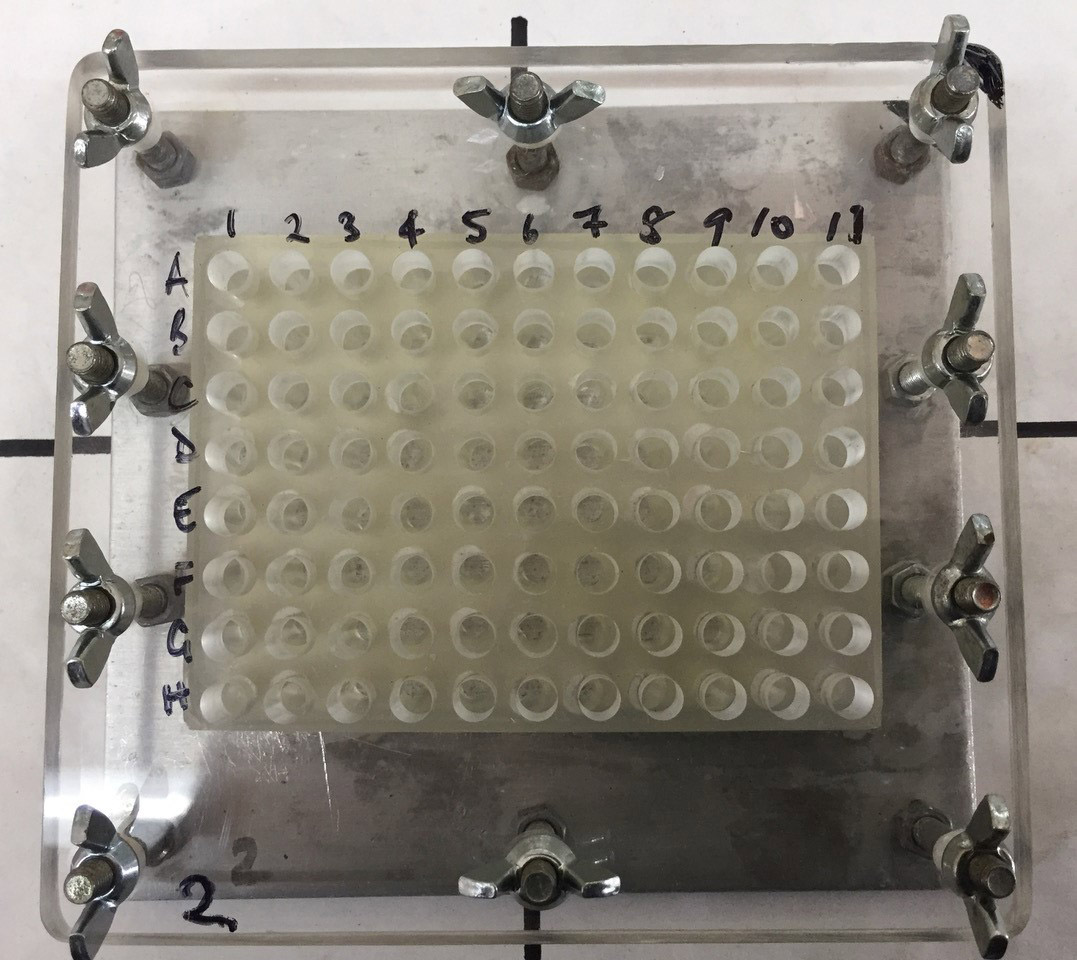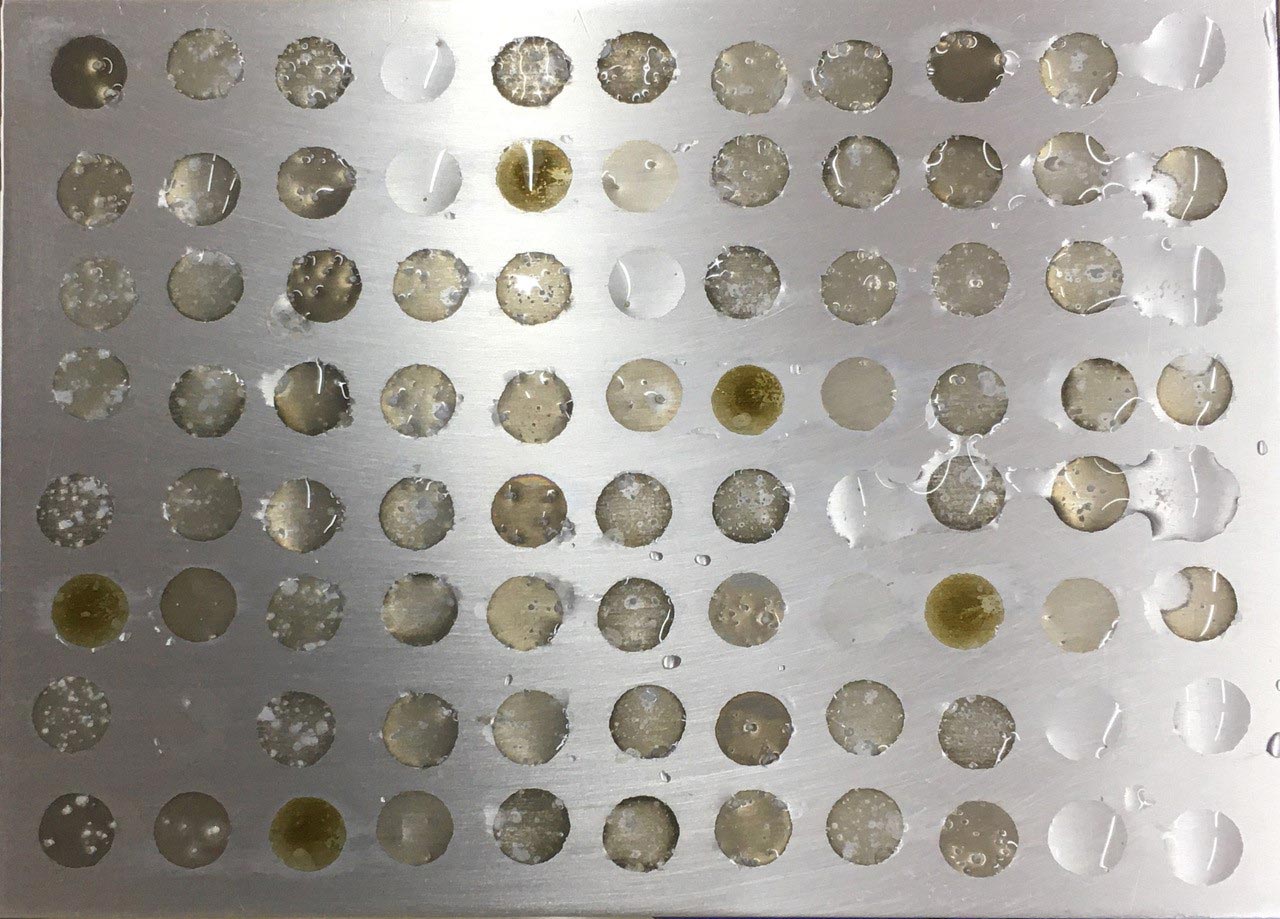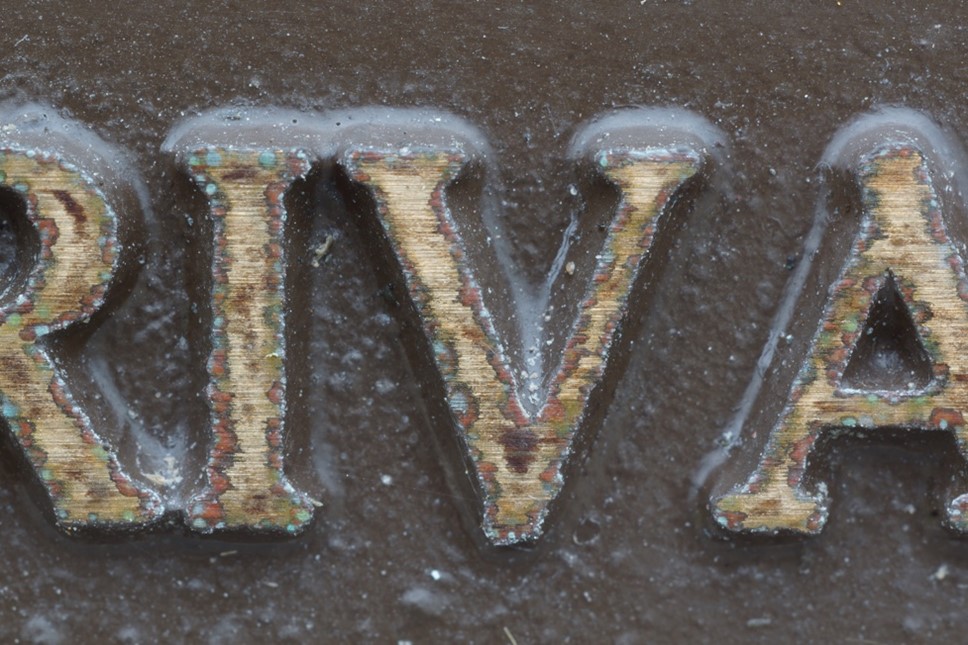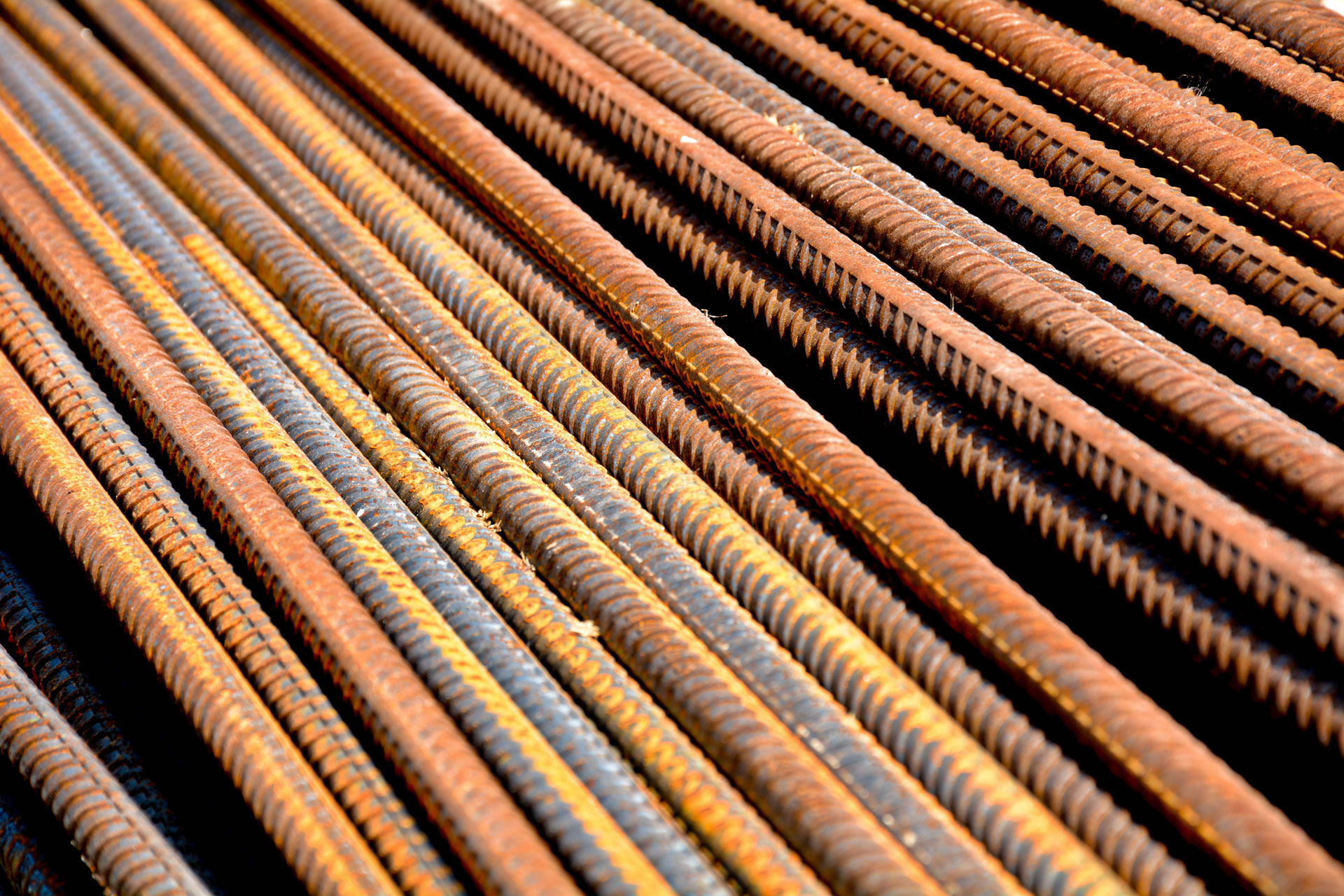Abstract #1: High-Throughput Discovery of New Corrosion Inhibitors
The generation of new corrosion inhibitor leads requires the experimental testing of many hundreds of chemicals under varying conditions (concentration, pH, etc) on multiple different metal samples with perhaps thousands of synergistic inhibitor combinations, a virtual impossibility by standard corrosion techniques. I developed a high-throughput method that allows for 88 simultaneous corrosion inhibitor tests in 24 hours on a single metal plate (Corrosion Science, 2012, 58, 327). Leads generated by this technique are then analysed further by electrochemistry and also incorporated as a pigment in a coating for further electrochemical & salt spray testing (New Journal of Chemistry, 2020, 44, 7647-7658). Successful inhibitors or inhibitor combinations, discovered by these methods, have been patented.
 Fig 1. Wells rig designed to perform 88 simultaneous corrosion inhibitor experiments
Fig 1. Wells rig designed to perform 88 simultaneous corrosion inhibitor experiments
 Fig 2. Aluminium substrate after 24-hour wells experiment with 88 different inhibitors. Note that droplets with no corrosion show the desired result.
Fig 2. Aluminium substrate after 24-hour wells experiment with 88 different inhibitors. Note that droplets with no corrosion show the desired result.
Publication highlights
- White, P. A., Collis, G. E., Skidmore, M., Breedon, M., Ganther, W. D., Venkatesan, K., Towards materials discovery: assays for screening and study of chemical interactions of novel corrosion inhibitors in solution and coatings. New Journal of Chemistry, 2020, 44, 7647-7658.
- Taheri, P., Milosev, I., Meeusen, M., Kapun, B., White, P., Kokalj, A., Mol, J. M. C., On the importance of time-resolved electrochemical evaluation in corrosion inhibitor screening studies. NPJ Materials Degradation, 2020, 4, 12.
- White, P. A.; Smith, G. B.; Harvey, T. G.; Corrigan, P. A.; Glenn, M. A.; Lau, D.; Hardin, S. G.; Mardel, J.; Markley, T. A.; Muster, T. H.; Sherman, N.; Garcia, S. J.; Mol, J. M. C.; Hughes, A. E. A new high-throughput method for corrosion testing. Corrosion Science, 2012, 58, 327.
- Harvey, T. G.; Hardin, S. G.; Hughes, A. E.; Muster, T. H.; White, P. A.; Markley, T. A.; Corrigan, P. A.; Mardel, J.; Garcia, S. J.; Mol, J. M. C.; Glenn, A. M., The effect of inhibitor structure on the corrosion of AA2024 and AA7075. Corrosion Science 2011, 53 (6), 2184.
- White, P. A.; Hughes, A. E.; Furman, S. A.; Sherman, N.; Corrigan, P. A.; Glenn, M. A.; Lau, D.; Hardin, S. G.; Harvey, T. G.; Mardel, J.; Muster, T. H.; Garcia, S. J.; Kwakernaak, C.; Mol, J. M. C, High-throughput channel arrays for inhibitor testing: Proof of concept for AA2024-T3. Corrosion Science, 2009, 51 (10), 2279.
Patents
- Methods for Inhibiting Corrosion. US Patent 2020/0040465A1
- Soluble Corrosion Resistant Sol-Gel. US Patent 2019/0241752A1
- Polymeric Agents and Compositions for Inhibiting Corrosion. International Patent WO 2017/152240 A1
- Compositions for Inhibiting Corrosion. International Patent WO 2016/154680 A1
- Recovery of Precious Metals. US Patent 2003/0154822 A1
Abstract #2: Australian War Graves project
Project duration: 03/2022 - 03/2023
RMIT’s RDF Team is working with the Department of Veterans’ Affairs’ Office of Australian War Graves (OAWG) to help ensure that commemorative bronze plaques and lettering on marble & granite headstones remain in good condition and are legible for the maximum time. OAWG is responsible for the care & maintenance of these commemorations in perpetuity. RMIT will work with OAWG to examine both fabrication & exposure conditions to provide guidance to enhance the life of these important memorials.
 Figure 1: Bronze corrosion initiated underneath the clear topcoat of the lettering of a commemorative plaque.
Figure 1: Bronze corrosion initiated underneath the clear topcoat of the lettering of a commemorative plaque.

Corrosion and Inhibition
Corrosion inhibitors, corrosion of steel pipes in a soil environment, photocatalysts for CO2 hydrogenation, nano-sensing, optical sensing.